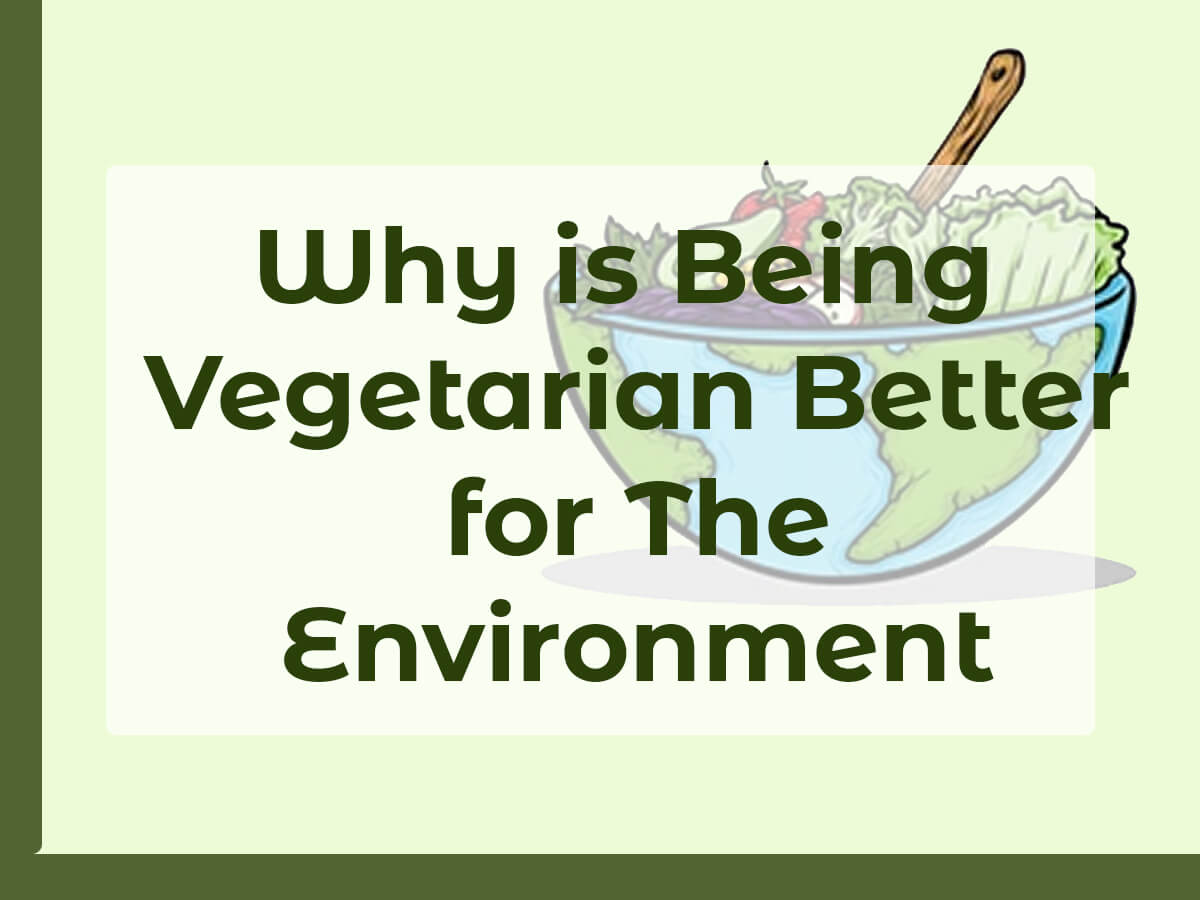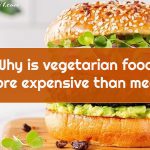Why is Being Vegetarian Better for The Environment?

I really feel that it is essential to look into every option for limiting our influence on the environment because I care so much about the world in which we live.
In recent years, there has been a growing awareness of the environmental consequences of meat consumption, and many people have chosen to adopt a vegetarian diet as a way to mitigate their carbon footprint.
From reducing greenhouse gas emissions to preserving biodiversity, there are countless reasons why vegetarianism is an eco-friendly choice.
In this essay, I’m going to delve deeper into the environmental benefits of a vegetarian lifestyle and discuss some of the challenges and opportunities of making the switch.
I hope that by the end of this piece, you will have a better understanding of why is being vegetarian better for the environment and good for your health for the health of the planet.
In this article you will read:
Let’s get started by listing 7 of the most important reasons
1. The environmental impact of meat production
It’s no secret that producing meat is a major contributor to environmental degradation. Let me tell you why.
First off, raising animals for food requires a lot of resources. It takes land, water, and energy to feed, house, and transport all those animals.
All of that production puts a huge strain on our planet’s resources.
But it’s not just the production process that’s a problem.
The meat industry also contributes to deforestation, as land is cleared to make room for more livestock.
This destruction of natural habitats can lead to a loss of biodiversity and harm local communities that rely on those resources.
So, let’s make one veggie burger at a time to be vegetarian for environmental protection!
2. Reducing greenhouse gas emissions
One of the biggest reasons why being vegetarian better for the environment is that it helps to reduce greenhouse gas emissions.
Now, you might be thinking “What the heck does that even mean?” Well, let me break it down for you.
When you eat meat, you’re not just consuming protein – you’re also consuming all the resources that go into raising and processing that meat.
All of these resources contribute to the production of greenhouse gases, which are the main culprits behind climate change.
But when you switch to a vegetarian diet, you’re cutting out a major source of greenhouse gas emissions.
The production of vegetables, grains, and other plant-based foods requires far fewer resources than meat production.
This means that by eating more plants and less meat, you’re doing your part to reduce your carbon footprint and help combat climate change.
So, if you want to do your bit for the environment, consider going vegetarian – it’s not just good for your health, but for the health of the planet too!
3. Preserving biodiversity
For the third reason, let me drop some knowledge on you about preserving biodiversity. This is a big reason why being vegetarian is better for the environment.
When we clear land for animal agriculture, we destroy natural habitats for a wide range of species.
This can lead to a loss of biodiversity, which is essential for healthy ecosystems. When we lose biodiversity, we lose the many benefits that come with it, such as clean air and water, pollination of crops, and protection against natural disasters.
But the good news is that we can help preserve biodiversity by being vegetarian and reducing our consumption of meat.
When we eat a plant-based diet, we use fewer resources and reduce the demand for land use. This means that we can protect more natural habitats and the wildlife that call them home.
4. Reducing water usage
Believe it or not, producing meat requires a lot of water.
From watering crops to feeding animals, the meat industry is a big user of this valuable resource.
Furthermore, the waste that comes from animal agriculture can pollute water sources, which can harm wildlife and communities downstream.
But if we choose a vegetarian diet, we would reduce the demand for meat, which in turn reduces the demand for water.
Eating plant-based foods is a more water-efficient way to feed ourselves and our growing population.
5. Lowering land use
Do you want to tell you about the impact of animal agriculture on land use? It’s a big reason why being vegetarian is better for the environment.
When we raise animals for food, we need a lot of land to grow crops for them to eat and to house them.
However, by adopting a vegetarian diet, we may cut down on our consumption of meat and reduce the amount of land required for animal agriculture.
6. Supporting sustainable agriculture
Did you know that a vegetarian diet helps promote organic farming? It’s a significant factor in the environmental advantages of being vegetarian.
Sustainable agriculture is all about growing food in a way that is environmentally friendly, socially responsible, and economically viable.
By choosing to eat more plant-based foods, we are able to support sustainable agriculture by reducing the demand for animal products.
Animal agriculture is often associated with unsustainable farming practices, such as using pesticides and fertilizers that harm the environment and degrade the soil.
If we choose to be vegetarian, we’re doing our part to support sustainable agriculture and promote a more sustainable food system.
Moreover, we get to enjoy delicious and nutritious plant-based meals that are better for our health and the environment.
So, let’s be awesome and choose veggies over meat!
7. Addressing food insecurity
It is fair to say that being vegetarian can help address food insecurity. So, It’s another important reason why choosing a plant-based diet is better for the environment.
Food insecurity is a big problem around the world, with millions of people not having access to enough nutritious food.
If you change your diet to vegetarian, you can help starving people all around the world!
This, in turn, can help address food insecurity by increasing the availability of healthy and nutritious plant-based foods for everyone the world over.
Further and even more importantly, though, plant-based foods are often more affordable and accessible than animal products, making them a great option for people who are struggling to put food on the table.
Overcoming challenges to veganism
While being vegetarian is awesome for the environment, we know it can be challenging to make the switch. But fear not, because we can overcome these challenges and make a positive impact on the planet!
· One common challenge people face is figuring out what to eat.
There are so many delicious and nutritious vegetarian options out there, from plant-based proteins like tofu and tempeh to hearty veggies like sweet potatoes and broccoli.
It just takes a little creativity and experimentation to find what works for you.
· Another challenge is dealing with social situations, like family dinners or eating out with friends.
Don’t sweat it – you can always bring your own dish to share, or research vegetarian-friendly restaurants in advance. And who knows, maybe you’ll even inspire your loved ones to try some plant-based meals themselves!
Ultimately, the benefits of being vegetarian – like reducing greenhouse gas emissions, preserving biodiversity, and supporting sustainable agriculture – make it worth the effort.
To wrap things up
Well, my fellow earth-lovers, now you may understand why is being vegetarian better for the environment. From reducing greenhouse gas emissions to preserving biodiversity, the benefits are numerous and significant.
Of course, we know that making the switch to vegetarianism isn’t always easy.
But by taking small steps and overcoming the challenges, we can all contribute to a healthier, more sustainable world.
So, what do you say?
Are you ready to join the veggie movement and do your part for the environment?
Whether it’s cutting back on meat consumption or fully embracing a plant-based diet, every action counts.
Let’s work together to create a better future for ourselves and future generations!










